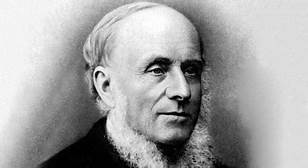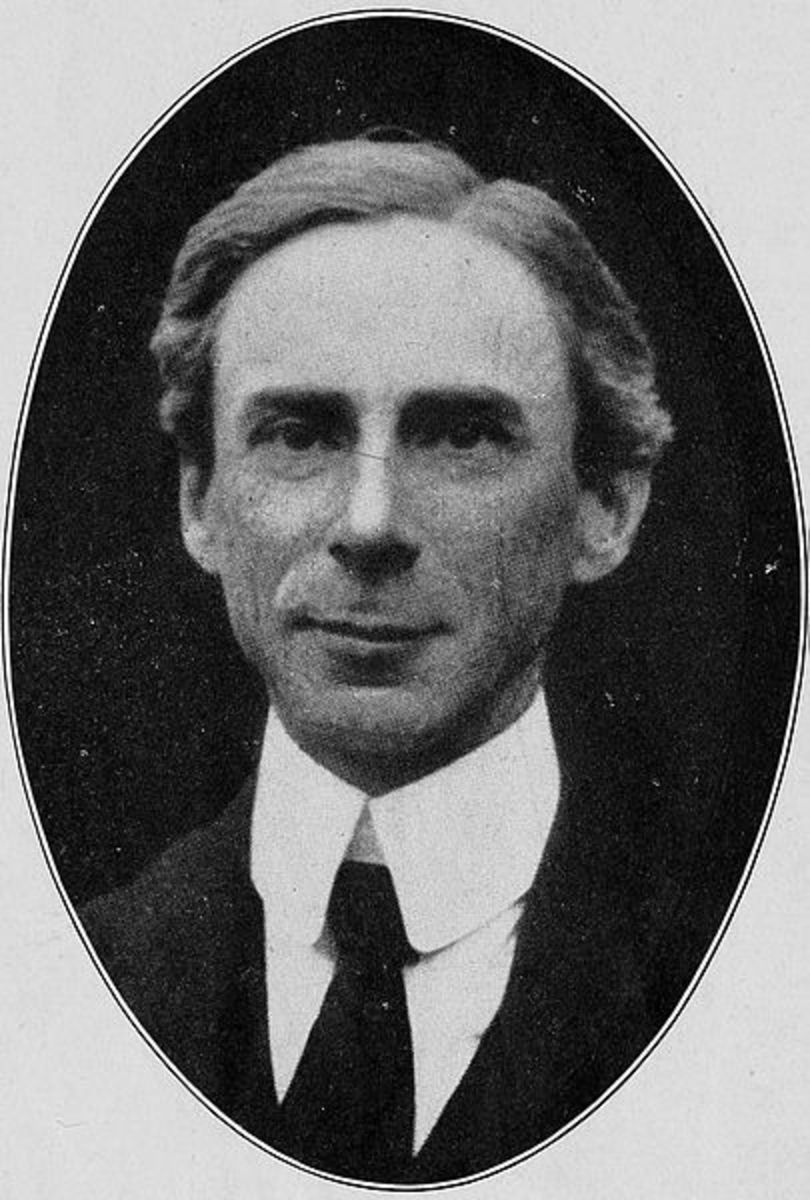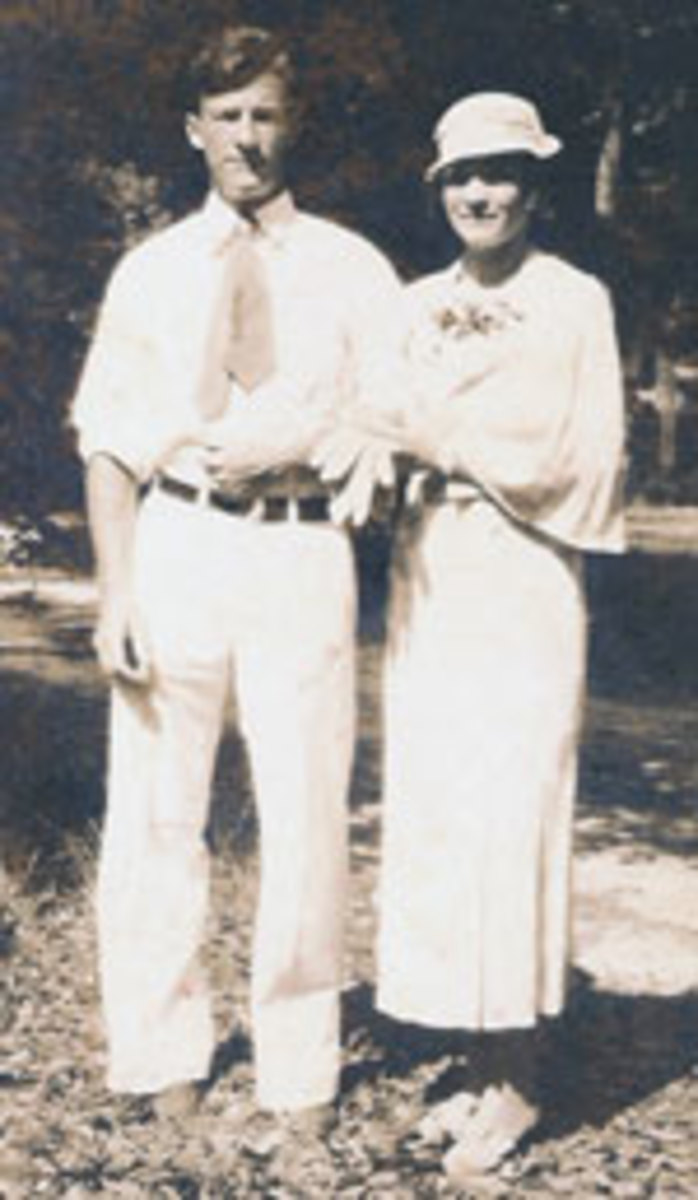- HubPages»
- Books, Literature, and Writing»
- Books & Novels»
- Nonfiction»
- Biographies & Memoirs
An Explicit Biography of Alexander Bain

Introduction
Alexander Bain was a renown philosopher of a Scottish origin whose contribution to the field of psychology, moral philosophy, linguistics and educational reform cannot be overemphasized. The philosopher is credited with establishing and incorporating a new scientific approach to the study and practice of psychology. He worked as a professor of Logic and English literature, the inaugural Regius Chair, and the Lord Rector at Aberdeen University. Some of his works in the theory of psychology include but not limited to: Character Study (1861), Body and Mind: How the theories Relate to One Another (1873), Criticism and Personal Recollections on John Stuart Mill (1882) among other writings exceeding 90 publications. There are also other large volumes of work and publications credited to his name. These immense achievements subsequently influenced his appointment as the rector of the Aberdeen University for three consecutive terms. Bain greatly advanced the study of psychology with his ideas and works.
The Life of Alexander Bain
Alexander Bain was born in June 11, 1818, at Aberdeen, Scottland and died in September. 18, 1903 while aged 81 years. He was born and reared by the family of Mr. and Mrs Bain. The senior Bain worked as a veteran soldier and a weaver. Due to economic reasons, he left school at the age of eleven to work as a weaver, thus the reason why he was popularly labeled as a weaver. Through his work, he was able to assist his siblings economically for a considerable period of time. He felt that he did not have the capacity to compete with his well to do peers economically. However, sometimes later, he began to attend lecturers at the Aberdeen Institute of Mechanics, as well as the Aberdeen Public Library.
In 1836, Bain opted to enroll in Marischal College, one of the only two universities of Aberdeen at this time. At this juncture, he met John Cruickshank an influential professor of mathematics, Thomas Clark, a chemist professor, and William Knight, a professor of Natural Philosophy among others who played a crucial role in influencing Bain’s thinking. Prior to graduating from this college, Bain began contributing to the Westminster Review with his first article “Daguerreotype and Electrotype” being published in September 1840. His college studies and career was distinguished particularly in the discipline of mathematics, physics and mental philosophy. He went on to graduate with a master of arts with the highest distinction. In 1841 he was requested to stand in for the professor of moral philosophy at Marischal College who had become ill. He went on to teach for three successive terms while also contributing to the Westminster Review at the same time. At the same time, Bain was also helping John Stuart Mill in revising his manuscript of his System of Logic (1842), as well as reviewing his own book. This friendship went to great heights and for a long time.
In 1845 Bain was officially appointed as a professor of natural philosophy and mathematics at the University of Glasgow. However, he resigned one year later after finding this post as being too constricting. Stated differently, he wanted a job where he could also find some time to do his own works especially those related to writing. After resigning from his professor job, Bain devoted to writing his own works. In 1848, he was appointed to a government post in London and hence opted to move to the city. In this town, he joined a cliché of brilliant intellectuals who included but not limited to John Stuart Mill and George Grote. Bain’s first main work the Intellect and Senses were published in 1855. Four years later, he followed this with his Will and Emotions. The two books played a critical role in establishing him as a pioneer contributor to the study of psychology. His link with the disciplined was retained when he was shortly appointed as an examiner in moral and logical philosophy at London University, as well as an examiner for moral science at the Indian Civil service. This gave him good exposure to the practice of psychology.
What Influenced Bain
Bain’s childhood was generally difficult. Having retired from his soldier career and working as a weaver, his father was unable to afford many of the basic necessities that could make life easy for Alexander. Furthermore, Alexander was forced to help his father in his trade in order to fend for this family. As a young child, Alexander’s health was so low that his colleagues doubted whether he would still live for more years. In order to overcome these difficulties, he was forced to adhere to a strict diet, rest, and exercises. He maintained this kind of life even while visiting friends or traveling abroad. The simplicity and regularity of his habits conditioned the major part of his life. As such, he developed enduring dyspepsia, as well as a tendency towards critiquing others in relation to their shortcomings. He was sure that these features adversely his career and he found it unable to conform to religion. This greatly delayed his growth and advancement academically.
At the Aberdeen Public Library, he caught the attention of Dr. John Cruickshank who was astonished by his level of knowledge and prowess in different disciplines. The Doctor encouraged and motivated Alexander to pursue his education further who eventually culminated into him joining the Marischal College. Much of Bain’s influence was particularly at Marischal College where he encountered his mentors. At this college, he was under the influence of professor William Knight who was teaching natural philosophy, Professor Thomas Clark (a chemistry professor), Professor John Cruickshank (mathematics professor). The stint at Westminster Review and the publication of his first article Daguerreotype, and Electrotype, also enabled him to come face to face with John Stuart Mill who later became his close friend.
Bain was so touched by the low standard of education in Scotland and hence advocated reforming the institution. Until 1858, neither English nor logic had received sufficient attention in the region. Therefore, Bain decided to focus on determining how these deficiencies can be supplied. His efforts in raising the education standard as well as in establishing the school of philosophy were quite successful. In this endeavor, he began by preparing suitable English textbooks, Higher English Grammar (1863), which was followed three days later by the Manual of Rhetoric. This was again followed by the A First English Grammar published in 1872 and in 1874 by a companion to the High Grammar. These works covered a broader field while the methods used and views presented were widely accepted. Furthermore, he published many other philosophical texts that were meant to improve the level of students in this discipline. Among these books includes the Logic, which was based on John Stuart Mill’s concepts. The strong advocacy for educational and social reform earned him an honorary degree from the government.
The personal relationship between J.S Mill and Bain was also significant in changing the shape of psychology, logic, and ethology. Furthermore, the relationship between these philosophers was so significant in the sense that the work and life of each spiraled and linked with each other. This connection and the similarity have fuelled the thought that the writings of Mill and Bain on key philosophical topics were the product of either two unique people or one of them was a follower of the other. Interestingly, despite immense differences in experience and age as well the temperaments of the two persons, Bain and Mill a one and unique body of work in the field of psychology and logic. In other words, their works can be described as having a similar pattern.
Bain’s Contribution to practice of Psychology
Bain’s contribution to the field of psychology is immense. For instance, he successfully described and classified psychological phenomena. This form of classification and description which is based on the ideas of associationist philosophy centers on a methodological exposition of the mind, as well as the physiology of the nervous system. Furthermore, the descriptions are done using a mixture of psychological, physical, and philosophical perspective. Brain also introduced a new method of introspection in studying the state of emotions and the mind. It is this concept of applying a scientific approach in classifying the psychical phenomena which gave the scientific nature to his work. This value has been enhanced by the Brain’s methodological exposition alongside his command of illustration.
In his cataloging and systematic study of the physiological and psychological data, Brain contributed to the development of the psychology discipline from a metaphysical perspective. Furthermore, he successfully demonstrated the significance of the physiological and anatomical data to the study of psychology. What is more, by placing an emphasis on the essentiality of the conscious movement, he created a path for ensuing studies in the field of psychology.
Bain’s work and approach to psychology have on several occasions been labeled as the “last word” of the earlier phases of psychology. However, in the real sense, he was the actual pioneer of the new phase of psychology. It needs to be considered that the ensuing psycho-physical reviews have all been within the spirit of his work. Furthermore, despite the fact that he was a strong advocate in the use of the introspective approach in the psychological examination, he was among the first philosopher in appreciating the assistance offered by comparative psychology, social psychology, and even developmental psychology. He also placed an emphasis on the significance of people’s experiences of effort and movement and his theory of central innervations has been profoundly used as a suggestion by later psychologists. His idea that a belief is simply a preparation for an action is appreciated by both functionalism and pragmatism.
Bain’s Influence to Later Works
The concept of movement in psychology is considered as the work of Alexander Bain. Prior to the introduction of this idea, there were few thinkers who had the mind to measure and observe movement as well as utilize them as psychological data in order to comprehend how the mind works. In coming up with this concept,he Bain was deeply inspired by his observations and experiences on newborn lambs. He was keen to watch the lambs struggle to stand on their legs and then stand to move. Interestingly, the earliest movement of the lambs consisted of the jumbling of the backward, forward, and sideways. However, they easily learned to walk and even run well just in a few hours. This form of a spontaneous activity was differentiated by Bain from reflective movements.
Bain used the feelings of pain and pleasure as a way of explaining the motivation behind these phenomena. Although this explanation was a statement of trial-and-error, this view becomes so crucial in the behavioral theories of Skinner, Thorndike, and Pavlov. In simple terms, Bain’s main argument was that spontaneous behaviors emerged and were related to the negative and positive consequences which followed such behaviors. Though Bain did not experiment with his thoughts, his works provided the basis for fissure which subsequently helped in separating psychology from philosophy. His ideas are also perceived to have influenced modern philosophers such as Wundt, Fechner and Johann Herbart. Herbart advocates and argues for a scientific perspective of psychology and further notes that it is impossible to conduct experimentation on the mind. A significant level of Bain’s ideals survives in psychology in modern perspective.
Conclusion
Bain and his works typically raised psychology to new levels. This philosopher is unique in the sense that he was able to combine philosophical interests with educational ones as well as social interests in the community where he lived. He is credited with bringing practical and educational reforms. Despite the fact that the philosopher is now dead, he has been highly reputed for being influential in his time as a grammarian and logician. Furthermore, he is also revered as the pioneer of modern-day psychology. Some of his theories have formed the basis of modern practice in psychology. What is more, his contribution in Scotland in the education sector is well recognized as well. The contribution of Alexander Bain on the field of psychology, particularly in differential, physiological and social psychology is still notable in modern practice.







